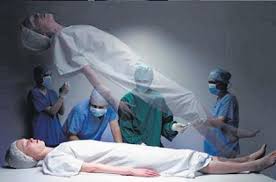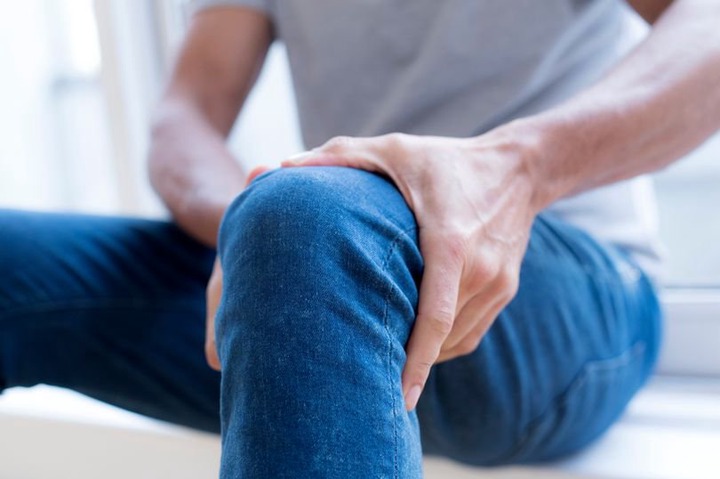
What you need to know:
There are so many myths about end-of-life experiences. Some people argue that the dying usually become unresponsive in that they will not answer you because they have already stepped halfway into the other world.
Others say the dying get a burst of energy, order their favourite food, and then when everyone is preparing for their homecoming, they slip away and die.
Death is inevitable. It can be sudden or drawn out, especially in cases of terminal illnesses. And in the drawn-out deaths, grief thrives.
Friends and family spend long days in the cold hospital wards taking care of the patient, who has no appetite and is too weak to sit up in bed.
Then one day, a flicker of hope ignites. The patient begins to become lively. They now sit up in bed and engage in hearty conversations.
They start speaking of their plans, they ask for their favourite meals, and they are now walking about the room and along hospital corridors, greeting all and sundry.
Then the families go back home and start preparing for their homecoming.
But later that night, a call comes in. The patient has passed on.
But how?
Doctors say this is a surge phenomenon, where the dying become much more active than before. This usually happens days, hours, or even minutes before a person’s passing.
Salat Abdi, a clinical officer with Kitengela Medical Services, describes the surge as an unexpected, untimed period in which a patient exudes energy and has a zest for life, but later loses their life. These patients may either not be very sick or critically ill.
Scientifically, the surge phenomenon refers to a terminal lucidity in the unknown period before death.
The patient’s brain activity spikes, particularly the high-level cognitive functions such as perception, memory and consciousness.
Very ill patients get out of bed and get dressed, walk around, those who are at home ask, “can we go for lunch? Or I want to go to the bank.”
Jacob Nyongesa remembers this so well.
Three years ago, Paul Okumu, 94, his grandfather, experienced the surge phenomenon irregularly before his death. Mr Okumu was well and energetic on one day, and sickly the following day.
For three months until his eventual death, the surge would occur randomly, leaving the family in a continuous state of limbo and anguish.
“He had been struggling with health issues associated with old age but he mostly complained about his stomach. This one time, we took him to the hospital and when we came back and got out of the car, he couldn’t cross the road to go to the boma. I had to carry him.
“We sent for a doctor, who told us Mzee had lost his sight, and it was also noted that his feet had begun swelling. His health issues went on for a while, and it reached a point where he began to vocally yearn for death, saying the pain was too much for him to bear,” says Mr Nyongesa.
Due to his fragility, in the final three months, he chose to spend time in his bedroom. Later, he said his bed frame was hurting his ribs, so a new mattress was bought for him to sleep on the living room floor while his new house was being constructed.
When he was lively, he would ask for fish, listen out for whoever was passing by and if he recognised the passer-by’s voice, he would engage them in hearty conversations, tell them about the days of his youth, and advise them on how to be better people in the future.
“In the final days, whenever he asked us to take him outside to bask in the sun, we knew he was well and he would finally regain his health, but when he refused to come out, we knew things were bad, so we had a doctor on speed dial. Finally, as he slept in the living room one day, he died with his family by his side,” says Mr Nyongesa.
Five years ago, Archie Achieno’s mother was sick. Her mother, who had been battling cancer, was in hospital and did not get out of bed much. Then one day, she experienced an increase in energy.
“She was so vibrant that, on that day, she fed like she had never before since she was hospitalised. She talked a lot and was so excited about seeing her loved ones. We knew she was getting better,” she says.
Death was not on Ms Achieno’s mind for she knew her mother would finally get to walk out of the hospital.
However, the surge did not last because her mother relapsed. Just as it was before she experienced the surge, she once again became unconscious for hours.
A 2023 report by the American National Library of Medicine on the Clinical Signs and Symptoms of Imminent End-of-Life in Individuals with Advanced Illness found that 84 percent of people who experience the surge phenomenon- usually die within a week, with 43 per cent dying within 24 hours.
“The day we went to the hospital and found that she wasn’t in the room, that was when it hit me (that she had died). But during the surge, I knew she was getting well and you would soon be discharged.
“I was shocked when I was informed hours later that she had relapsed. The doctors had said the only thing they could do for her was to manage the pain she was in. They gave her strong pain medicines that always had her asleep until her final moments,” says Ms Achieno.
Audrey Oluyole, a Nairobi-based counselling psychologist, explained to Lifestyle what patients who experience the surge phenomenon may psychologically feel.
“During this surge phenomenon, patients feel confused and disoriented. A patient might feel they are getting better as they are suddenly able to do energetic things such as cleaning as well as experience different things such as having visions of family or friends who died.
“They can start having conversations with people who aren’t in the room, feeling the presence of people, animals, or spirits who may bring them comfort or a sense of being between two worlds.
“For example, dementia patients who experience the surge in energy may remember clearly the names of family members after not being able to remember for a long time. These patients may feel a renewed sense of hope or conversely, despair when they realise it’s temporary,” says Ms Oluyole.
Sick people who experience the surge, according to Ms Oluyole, can also experience a pronounced fear of death. They may even experience “some sort of peace and acceptance” and begin doing things such as having future conversations with family, enjoying a last meal, or even making unexpected phone calls to someone who has been on their mind lately. Others mumble, ‘I want to go home.’
During this time, the family has to find ways of coping, especially if their patient has been sick for a while. Ms Oluyole advises families to be candid and actively communicate during this period, so that no one is left nursing false hopes. Families should also have emotional and spiritual support “because emotional grief is quite heavy.”
As with many grieving people, it is hard to accept death; hence many tend to assign blame somewhere when their loved one passes on.
In Ms Achieno’s case, she blamed medical personnel for negligently handling her mother’s treatment and how they interacted with her family.
“Doctors in that particular facility were not of much help because they never informed the family what was going on with the patient. No nurse was assigned to attend to the patient in her private room.
“Doctors should have also educated the family on what the surge was, what happens during those moments, and that it was just a phase that would wear out so that we wouldn’t have had our hopes high on mom improving,” says Ms Achieno.
Mr Abdi explains how some doctors interact with the families of critically-ill patients who experience this surge.
“For critically-ill patients, at this time, we don’t change their medication just because they are experiencing a surge in energy and are lively. We monitor them for a while — maybe for 48 hours to see if anything changes. At this time, our interactions with the patients’ families take on different dynamics.
“We don’t face pressure from the family because they are happy and hopeful that their patient is on the mend and they will soon leave the hospital, but when the patient dies after experiencing the phenomenon, the pressure starts. They can’t understand how their loved one was energetic and lively in one minute and gone in another,” says Mr Abdi.
Rarely do doctors explain to patients’ families what the surge phenomenon is, but when they have to explain the behaviour of a patient during this period, they keep the explanation short and extremely clear, devoid of any false promises. They too are mentally affected by the phenomenon and the eventual loss of the patient as well.
But what if a critically ill patient experiences the surge and eventually survives to have another shot at life?
According to Mr Abdi, if a critically-ill patient survives, it is a cause for celebration for both the family and the doctors — a miracle, no less!
However, it does not mean the patient is discharged immediately. They are admitted for additional days, where specialised doctors monitor their progress before discharge decisions are made.
nation.co.ke
Source:




